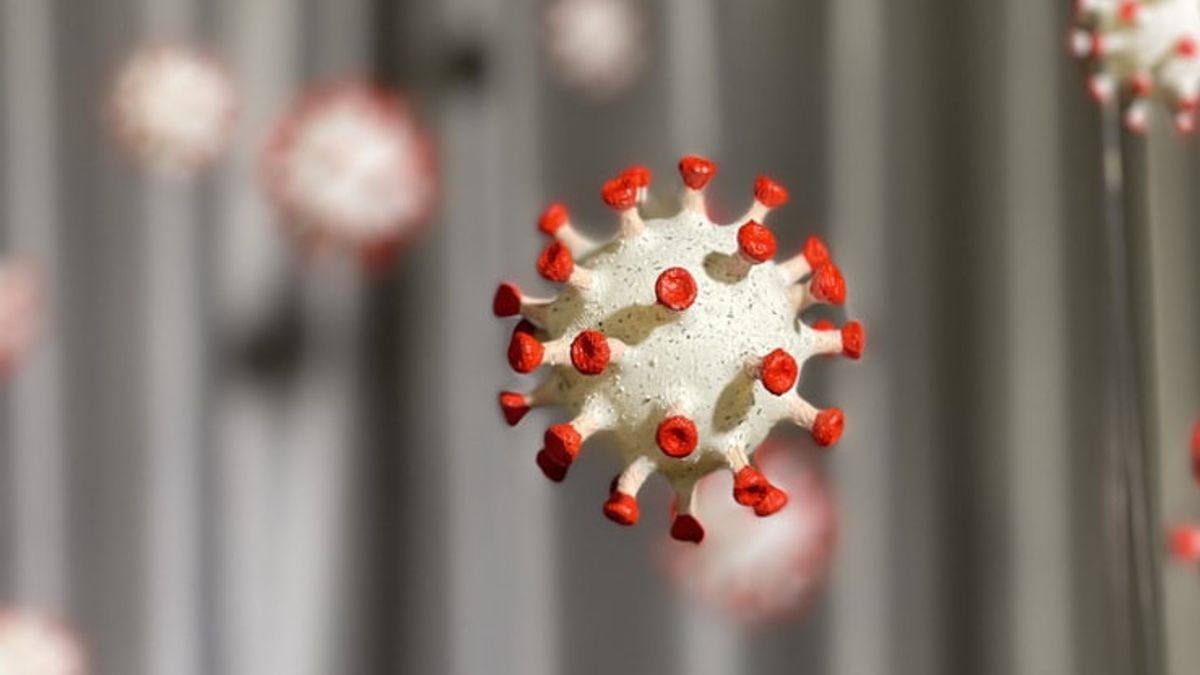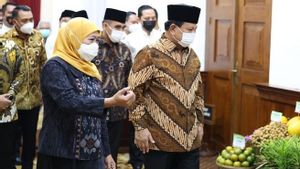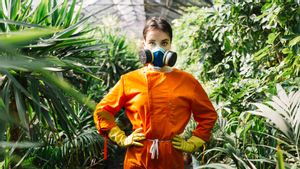JAKARTA - General Chairperson of the Central Executive Board of the Indonesian Allergy Immunology Association, Iris Rengganis, emphasized that the occurrence of virus mutations caused Indonesia to not be completely safe from COVID-19 transmission even though the community's antibodies were already high.
"Even though the antibodies have increased, we can still get infected. People don't think they can't be infected, they can still be infected because a virus mutation has occurred," said Iris, as quoted by ANTARA, Monday, August 15.
Iris said mutations cause a virus to continue to live, because mutations are a way for viruses to survive from the surrounding environment. In the case of COVID-19, the virus can mutate because it has RNA.
As a result, even though antibodies in the community have increased due to a well-executed COVID-19 vaccination, transmission can continue to occur anytime and anywhere as long as there is social contact between humans. Coupled with research that says that antibodies can decrease after six months since the last injection.
Iris emphasized that it would be more severe for someone who has entered old age (elderly), suffers from comorbidities or auto-immune survivors, and cannot follow the COVID-19 vaccination. Thus, the group must be more vigilant by avoiding crowds or crowded public places such as malls.
According to her, vaccination can work on the body optimally if it is balanced with the application of strong health protocols such as wearing masks, maintaining distance, adequate rest, and consuming nutritious food.
Iris emphasized that the booster dose must be expanded and completed as soon as possible so that the immune system can be maintained. In addition, it is hoped that the health protocol will continue to be implemented while the country is trying to slowly move toward an endemic.
"We can't say that high antibodies can protect. Unless he doesn't have a mutation, we also have to keep coming back, finally the health protocol," said Iris.
Previously, the Indonesian Ministry of Health through an Epidemiologist from the University of Indonesia Iwan Ariawan revealed that the proportion of Indonesian people who have antibody levels against SARS-CoV-2 that causes COVID-19 increased to 98.5 percent based on the results of a serological survey (serosurvey) in July 2022.
"Serosurvey results show an increase in the proportion of the population who have SARS-Cov-2 antibodies from 87.8 percent in December 2021 to 98.5 percent in July 2022," said Iwan, Thursday (11/8).
VOIR éGALEMENT:
The serosurvey as a result of the collaboration between the Ministry of Health and the Pandemic Team of the Faculty of Public Health (FKM) at the University of Indonesia (UI) is the third time it has been conducted nationally, after previously being held in December 2021, March 2022.
The third serosurvey was carried out by revisiting as many as 84.5 percent of the total 20,501 samples selected in 2021 through questionnaires to anti-body checks carried out in 100 cities/districts.
Iwan said the levels of antibodies owned by 98.5 percent of the Indonesian population increased more than four times compared to December 2021 and July 2022.
"The median antibody levels increased from 444 units per mm to 2,097 units per mm," she said.
The English, Chinese, Japanese, Arabic, and French versions are automatically generated by the AI. So there may still be inaccuracies in translating, please always see Indonesian as our main language. (system supported by DigitalSiber.id)
















